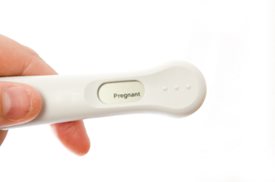Fertility Tests
 Fertility Tests
Fertility Tests
If you have been trying to conceive for over a year then you may want to consider getting your fertility checked. Or alternatively you may just want to check your fertility or your partners (or donors) for peace of mind.
Here are the most common initial fertility tests. Your GP can refer you for these tests, which will usually happen in hospital or at a fertility clinic. In addition some tests are available to perform in the comfort of your own home.
Sperm test
In about one-third of cases, fertility problems are due to the male partner. Sometimes, a lack of sperm or sperm that are not moving properly can cause a failure to conceive. Your GP can arrange a sperm test. The male partner will be asked to produce a sperm sample and take it for analysis, probably at your local hospital.
Alternatively try Fertilcount the home sperm count test, an easy to use screening test designed to help measure sperm concentration in the comfort of your own home.
Blood tests to check ovulation
Levels of hormones in a woman's blood are closely linked to ovulation, when the ovaries release an egg into the fallopian tubes. Hormone imbalances can cause ovulation problems, and a blood test can help determine whether this is happening. Going through a phase of not having periods, or having irregular periods are also signs of ovulation problems. The most common cause of ovulation probably is Polycystic ovarian syndrome (PCOS).
Test for chlamydia
Chlmydia is the most common STI in the UK. It can cause pelvic inflammatory disease and fertility problems. Your GP can refer you for a test for Chlamydia. This can be a urine test or a vaginal swab. Find out more about getting a test for Chlamydia.
Ultrasound scan
An ultrasound scan can be carried out to check the woman's ovaries, womb and fallopian tubes. In a transvaginal ultrasound scan, which takes place in hospital, a small ultrasound probe is placed in the vagina. This scan can help doctors check the health of your ovaries and womb.
Certain conditions that can affect the womb, such as endometriosis and fibroids, can prevent pregnancy from happening. The scan can also check for blockages in your fallopian tubes (the tubes that connect the ovaries and the womb), which may be stopping eggs from travelling along the tubes and into the womb.
X-ray of fallopian tubes
This is called a hysterosalpingogram (HSG). Opaque dye is injected through the cervix while you have an X-ray. The dye will help your doctors to see if there are any blockages in your fallopian tubes. Blockages can prevent eggs passing down the tubes to the womb, and so stop pregnancy occurring.
Home Fertility Tests
There are several home fertility tests available to determine the fertility of both men and women.
Read more about Home Fertility Tests Here